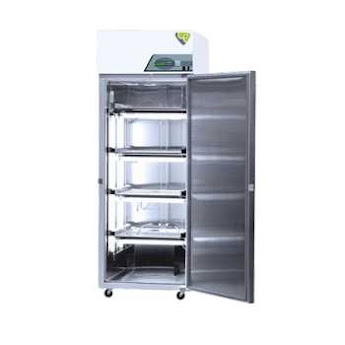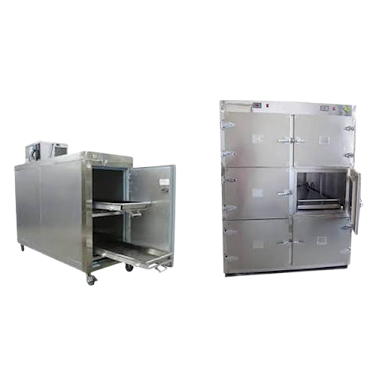All Hospitals' Required Inventory of Medical Equipment
- Get link
- X
- Other Apps
It can be difficult to navigate the medical equipment purchasing process for a hospital, lab, clinic, senior care facility, home healthcare provider, or private individual. Most buyers only consider the product's name recognition before making a purchase. Doing one's homework before Laboratory Equipment’s Hospital Supplies is essential, as the success of a healthcare system relies on the precision of its tests and services.
Many Forms of Healthcare Technology:
· In-House Diagnosis Tools:
Any device or instrument used in a medical context to determine a patient's health status is considered diagnostic medical equipment. Radiography (X-ray machine), computed tomography (CT scan), magnetic resonance imaging (MRI), ultrasound (ultrasound machine), echocardiography (echocardiogram), etc., are all examples of medical imaging modalities.
• Durable Medical Equipment (DME):
Therapeutic benefits are the primary reason for employing this category of medical supplies to treat particular diseases and disorders. The usage of this device is restricted to those with a doctor's order—medical equipment such as manual wheelchairs, hospital beds, walkers, traction apparatus, etc.
· Material for Medical Care:
The purpose of each piece of treatment apparatus is to treat a unique medical problem. It makes use of cutting-edge technology to repair a variety of dysfunctions. Such items also include Surgical Equipment developed to treat ailments requiring invasive procedures.
· Essential Medical Devices (OMDs):
Defining Life Support Equipment (also known as "LSD"), this medical technology is used to keep a patient alive. Heart-lung machines, medical ventilators, dialysis machines, incubators, and so on are only some life-support devices used in modern medicine.
· Medical Laboratory Instruments:
Most medical clinics and diagnostic centers will have medical laboratory equipment available. Such devices are designed for genetic testing bodily fluids like blood and urine. Examples of standard medical laboratory equipment include blood gas analyzers, chemical analyzers, blood collection supplies, and electrolyte analyzers.
Some considerations, if you're on the market for new medical equipment:
· Think about the reliability of your manufacturers and suppliers
As most healthcare product sales now occur online, it can be challenging to differentiate between real and counterfeit items. So, it is essential to investigate and shortlist prospective medical equipment vendors. Also, you can acquire the information you require about the manufacturers and their equipment by contacting a biomedical service provider or networking with those already well-versed in healthcare equipment. Autoclaves and Sterilizers are also important.
· Several kinds of medical tools:
A reliable provider will offer a wide variety of products for sale in their chosen industry. Customer choice is increased when they can investigate other options regarding inventory quality, technological knowledge, product functionality, testing, and customer feedback.
· The Standard of Care in Medical Devices:
In the healthcare industry, quality is essential, especially when revenue and client satisfaction are at stake. Australia's Therapeutic Goods Administration (TGA) enforces quality standards for medical devices through laws, certifications, warranties, and more.
· After-sales service:
No matter how well-made a piece of medical gear is, it could break down or need regular servicing at any time. It might be anything from a minor tweak to a complete system overhaul. A customer's level of happiness with their purchase is influenced by the quality of the service they receive after the event.
· List of Respiratory Devices for Hospitals:
Medical facilities utilize specialized equipment to treat patients with respiratory issues. Their standard medical equipment list includes nebulizers, CPAP machines, BiPAP machines, and ventilators. Several hospitals are currently experiencing difficulties meeting patient needs due to a lack of ventilators and other respiratory devices due to the crisis created by the second wave of coronavirus infection across the country.
· Other Medical Products
The day-to-day running of a hospital or clinic requires several general supplies and specialized medical equipment.
· Massagers & Steamers:
Steamers, commonly used in the beauty industry, remove oil and impurities from the skin, allowing the pores to open up and the skin to breathe easier. Treatments for the skin are the most common application of steamers.
· Stethoscopes:
All medical facilities, including hospitals, clinics, and private practitioners, need to have access to stethoscopes for their staff. This is why stethoscopes are always the most crucial medical gear to have on hand.
· Injecting Needles and Syringes:
Needles and syringes are commonly purchased in bulk by hospitals and medical clinics. Needles and syringes are essential medical tools. Hence, they are always purchased first.
· Devices for Performing Surgical Procedures:
To perform any surgery, surgeons require specialized equipment. All surgeries require various devices, including those used for anesthetic, breathing, and other functions.
· Tools for Cutting and Dissecting:
Scalpels, lancets, rangers, and scissors are a few examples of mechanical cutters that play an important role in surgery.
· Using One's Hands to Grip or Hold Something:
During surgery, skin and tissues are typically grasped and held with forceps and clamps.
· Knives and other Hemostatic Instruments:
To prevent further blood loss during surgery, hemostatic devices are utilized to clamp off arteries and veins. Hemostatic tools include artery forceps, cautery, and sutures.
Conclusion
To properly equip your medical practice, you'll need the following items. You can use them to create a pleasant workplace for employees and safe for patients. An outside medical answering service can be invaluable in pursuing a top-notch medical practice.
- Get link
- X
- Other Apps
.png)
.png)

.png)

Comments
Post a Comment